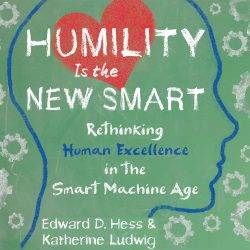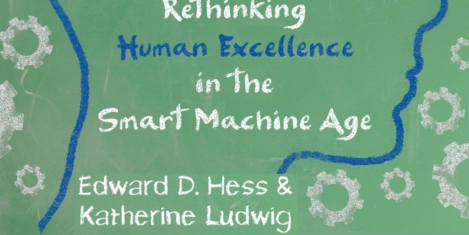February 22, 2017
New book offers a roadmap for workers in the age of smart machines 0
 University of Virginia Darden School of Business Professor Ed Hess and Katherine Ludwig have released a new book, Humility Is the New Smart: Rethinking Human Excellence in the Smart Machine Age (Berrett-Koehler, January 2017), where they wrestle with the defining workplace question of our era and offer workable solutions for employees to stay relevant. In the book, Hess and Ludwig argue that workers of the world stand at the brink of an unprecedented transformation, as a coming age of smart machines promises to eliminate tens of millions of jobs across the socioeconomic spectrum. The transition to an era of widespread automation will be tumultuous for both companies and employees, and its effects on the fabric of society have not yet been fully considered by workers, government entities or global corporations.
University of Virginia Darden School of Business Professor Ed Hess and Katherine Ludwig have released a new book, Humility Is the New Smart: Rethinking Human Excellence in the Smart Machine Age (Berrett-Koehler, January 2017), where they wrestle with the defining workplace question of our era and offer workable solutions for employees to stay relevant. In the book, Hess and Ludwig argue that workers of the world stand at the brink of an unprecedented transformation, as a coming age of smart machines promises to eliminate tens of millions of jobs across the socioeconomic spectrum. The transition to an era of widespread automation will be tumultuous for both companies and employees, and its effects on the fabric of society have not yet been fully considered by workers, government entities or global corporations.













 With the UK facing at best, very slow growth, or even shrinkage, of the working population, future changes to migration levels into the UK due to Brexit could exacerbate the financial stresses and strains caused by the UK’s aging workforce. This is according to the
With the UK facing at best, very slow growth, or even shrinkage, of the working population, future changes to migration levels into the UK due to Brexit could exacerbate the financial stresses and strains caused by the UK’s aging workforce. This is according to the 














February 10, 2017
Reflections on the future of work from a mirrored room 0
by Neil Usher • Comment, Facilities management, Technology, Workplace design
(more…)